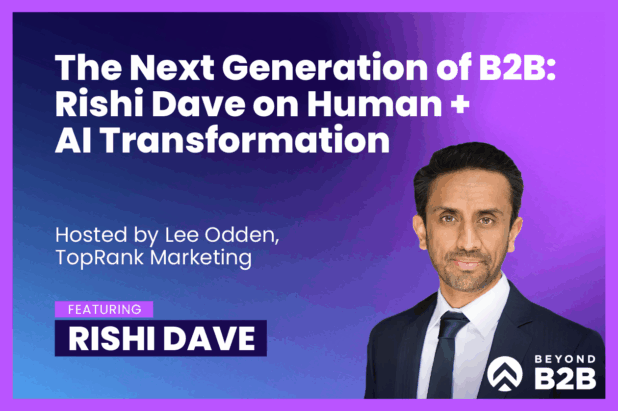
I know you’re thinking, “What does a castle have to do with measuring value from search engine optimization?”. Nothing really, but I’m in England for the next week or two and didn’t need much of an excuse to post a photo of Hever Castle, which I visited recently. Actually, I do have a metaphor, so read on.
Search engine optimization is most often known as a pull direct marketing channel or inbound marketing as many are calling it. Customers are actively looking for solutions, products and services using various forms of search and that spells opportunity for marketers to do what they can to be front and center.
Typically it’s the marketing department that funds the SEO effort whether it’s handled in-house, outsourced to an internet marketing agency or as is increasingly more common, a mixture of both.
There are many ways to measure the effect and results from Search Engine Optimization and I think the focus on sales and lead generation by marketers and web site managers who are hard pressed to increase revenue, misses or understates the effect and benefit of SEO in many ways.
In situations where company marketers are not involved beyond approving SEO strategy and if monthly reports do not take into account a 360 view of the effect of keyword optimization, code level optimization, link building and conversion optimization and other benefits, there can be some question as to what the search engine optimization effort is achieving. This is especially true when marketing dollars are under scrutiny for cost cutting or reallocation.
Now’s my chance to validate the castle photo above with a nice little metaphor.
Imagine if you had a castle built and the only value you measured was the castle as a residence. The benefits of having a castle as a home make it pretty hard to justify the expense. Yet, I suspect there are plenty of castle builders and owners over time that felt the need to out-do their peers, show their wealth or some other ego appeasement and did it anyway.
But is that all a castle is good for? Of course not. A castle by the nature of its construction is a fortress and provides protection from enemies, keeping them out. In many cases it also kept people in. Castles are/were where ceremonies are held as well as matters of church, state and business. I could list others but I think you get the idea.
To build a castle simply as a home, misses the point. Engaging a SEO program simply to increase rankings for “ego phrases” or solely to increase web site traffic also misses the point.
For company owners or marketers in a situation where they’re wondering about the value they’re getting, here are a few considerations on the value that a holistic search engine optimization program brings:
- Sales and leads – Let’s start with the obvious. Increasing keyword rankings on search engines where customers are looking for products and services can increase traffic and subsequent sales. According to research reported by Marketing Sherpa, SEMPO and eMarketer, there’s no doubt SEO results in ideal ROI and conversion rates compared to other online marketing tactics.
- Customer Service – So much of SEO is focused on customer acquisition but what many marketers miss out on is content optimization for after the sale. Most companies publish support information in simple format like a Frequently Asked Questions FAQ format or more robust as a knowledge base. Either way, making that information easier to find via major search engines can increase customer service levels or potentially reduce costs via call centers or other customer service support.
- Recruiting – While unemployment is high, finding the right candidate is still a challenge for talent acquisition departments. Optimizing job listings can make it easier for potential candidates or others that would refer to a candidate to discover opportunities. While optimizing job listings is no substitute for the screening services offered by most recruiters, being able to fill just one or two positions due to candidates finding your company’s job listings via search could save substantial recruiting costs, especially at higher levels.
- Public Relations – We’ve written extensively about news optimization and the fact that journalists, analysts and many bloggers use search as an initial filter for finding subject matter experts, researching companies and stories. Major engines like Google and Bing as well as blog, news, image and social media search channels were all reported as tools that journalists uses to do their jobs in TopRank’s Journalist Use of Search Survey. Making it easier for the media to find news content increases unsolicited pickups substantially. It also attracts contributed article requests and interviews.
- Brand & Reputation Management – By the time a “yourbrandsucks.com” site ranks #1 for your company or important brand names, it’s very very late in the game. SEO applied properly to brand name representations on and off the main company web site on an ongoing basis provide a sort of insurance against such activity. Proactive search reputation management through SEO is the “apple a day keeps the doctor away”.
- Social Media – Most social networks grow through members inviting their friends to join. Ning alone has over a million different social networks. You can find a different community for just about every niche topic imaginable. SEO applied to social content can make such networks more easily discovered via search by people who are looking for information and often, communities of like minded individuals to network with. In other words, optimized public social network content can augment the growth of that network through prominent search engine rankings.
- Naming Research – Many companies name products using 3rd party professional services and many more name them using who knows what methodology. Tapping into keyword research often used with SEO can help brand marketers gain insight into the different phrases customers use to search for certain products/services. If search is to be a significant portion of what drives marketing, then it makes sense to leverage keyword research to name products and write taglines. Building keywords into product names helps customers understand what the product is as well as automating a big part of the SEO puzzle.
By looking at SEO from a more holistic perspective, companies can see more clearly how keyword optimization and promotion of content for better search visibility can result in quite a few business goals beyond sales and lead generation being positively affected.
Companies that narrowly measure siloed metrics like rankings or certain form based conversions and nothing else with the assumption that any other effect would be achieved whether SEO was implemented or not, are in a word, misguided. And another few words on that: those marketers are shortchanging the effect and subsequent effectiveness of the SEO effort by not competently measuring the real effects and benefits content from optimization and link building.
The approach agencies like TopRank take on this kind of situation is to emphasize client training. If SEO agencies can provide multi-departmental SEO training to their clients, more of the organization can benefit from the effect of keyword optimization of content and link building. The days of being competitive by hiring a SEO consultant and not being involved in the process are dead or dying fast. Without incorporating SEO into all aspects of digital content publishing online, companies will put themselves at a disadvantage over those enterprising competitors that do.
What other benefits from SEO would you add?


